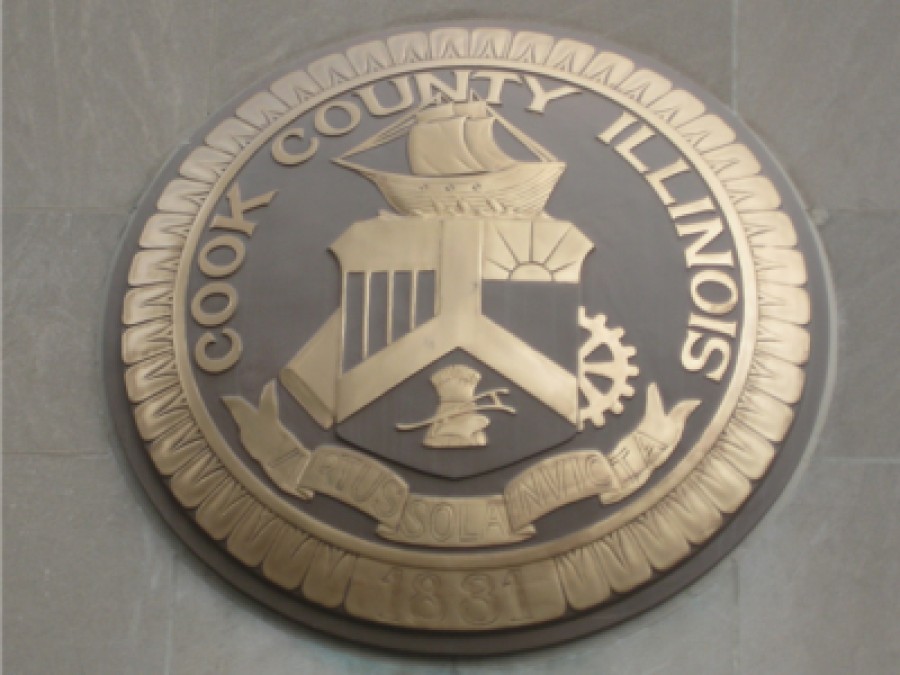

If you work in a retail store or fast food restaurant in Cook County, you could be in for a raise in two weeks. On July 1, Cook County’s minimum wage ordinance goes into effect, increasing the minimum wage from $8.25 to $10 an hour. But not everyone in the county will be getting that raise, as some cities and villages have opted out.
WBEZ’s Michael Puente discussed the issue with Greta Johnsen.
Greta Johnson: First off, tell us about this minimum wage increase. How did it come about and how is this going to work?
Puente: Greta, this ordinance was adopted by the Cook County Board last October. 13 members – all Democrats --- voted in favor of it and the 3 against it were all Republicans. This ordinance calls for the minimum wage to increase to $10 an hour on July 1st. It goes up a dollar for each of the next three years to a maximum of $13 an hour by 2020. Now a companion ordinance calls for paid sick time for nearly a million low wage workers in cook county. This calls for every 40 hours worked earns one hour of paid sick time for a maximum of 40 hours of paid sick time per year. That also goes into effect two weeks from today.
Johnson: But not all cities, village and towns in Cook County are on board with the increase. What is going on here?
Puente: Well, again, this is supposed to take effect all over the county but because of home rule, local communities can decide if they want to opt out of certain county ordinances, except taxes. As of today 72 communities are on board but 49 have opted out meaning workers in communities like Arlington Heights, Buffalo Grove and Oak Lawn won’t be getting a raise. The City of Chicago, of course, has it’s own minimum wage ordinance. In the city it’s 10:50 but that will increase to $11 on July 1st. So we’re basically talking about suburban cook county.
Johnson: Why are some communities choosing to opt out of the ordinance?
Puente: The main reason some are saying is that businesses can’t afford it. That it’s too much and could force some businesses to hire less workers or shut down stores or chose to move to an area with a lower minimum wage. Another reason is that some communities are located in two counties such as Cook and DuPage or Cook and Will … and that could make for some businesses in town to have a higher minimum wage than another section of town. But the bottom line some say is cost. I spoke this week to the Mayor of Park Forest, John Ostenburg. He says his town has yet to take an official position on it. He said having a higher minimum wage can makes sense.
Ostenburg: I really kind of believe that an ordinance of this type has the greatest benefit for residents of the south suburbs versus all the other areas of Cook County because we probably suffer from poorer levels of income among our general population than any of the other regions.
Puente: Greta, I should add that Park Forest will take up the issue at a village board meeting on June 26th.
Johnson: What’s the reaction from county leaders like board President Toni Preckwinkle who pushed for this?
Puente: She’s not happy that so many communities are opting out. She thinks it higher wages can help to move lower income workers out of poverty and make for a better quality of life. She also thinks it benefits all of us when workers get paid sick time to recover from an illness. I had a chance to speak to President Preckwinkle on Friday. I asked her what does she say to those communities who have decided to opt out of the higher minimum wage?
Preckwinkle: I think they should talk to their low wage workers. There is no opposition for the idea for people should be paid living wages from people who actually get minimum wage.
Puente: But again Greta, because of this home rule law, there’s really nothing the President Preckwinkle or the County Board can do to force communities to abide by the ordinance.
Johnson: There are a number of groups that are pushing for the higher minimum wage. What are they doing to move the issue forward?
Puente: There are a number of groups that are pushing for the higher minimum wage. Most of them are advocating for higher wages at village board meetings. The main group is Arise Chicago. They too have attended some local meetings and they say voters are paying attention to what’s happening especially in those villages that are opting out. So they are trying to put some political pressure. Will it work in a lot of these communities? Well, right now, it’s worked in some and not in others.
WBEZ’S Michael Puente covers Cook County Government and Northwest Indiana. Follow him on Twitter @MikePuenteNews.